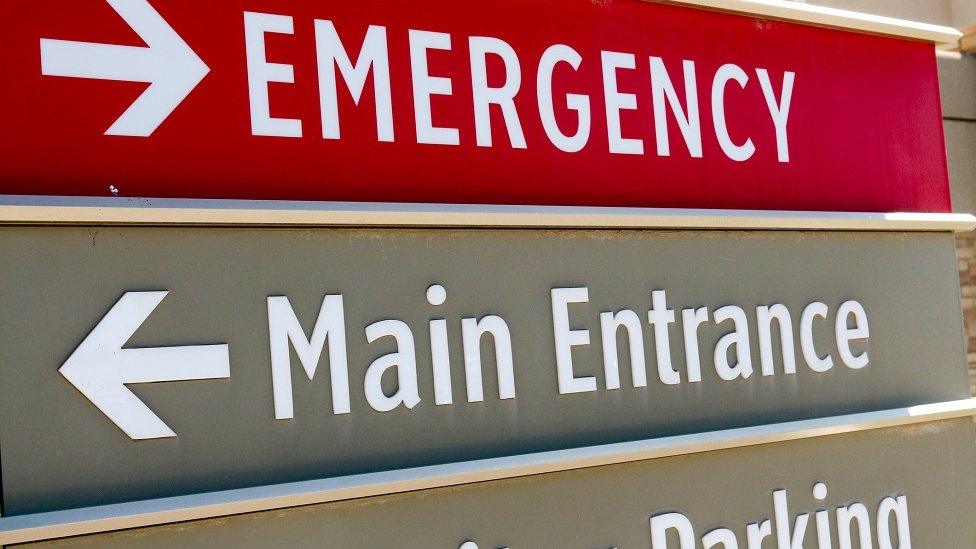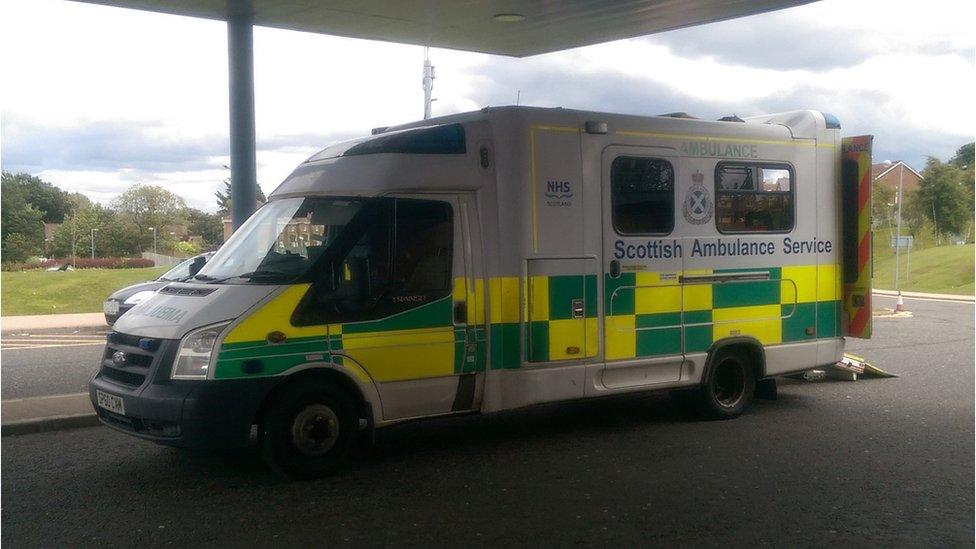Scotland's A&E departments meet waiting times target
- Published

Scotland's accident and emergency departments have met their waiting times target for the first time since last July.
New figures for June show that 95.5% of people who presented at A&E were dealt with within four hours.
The Scottish government wants at least 95% of patients to be seen, and subsequently admitted, discharged or transferred within that time.
Only the Glasgow and Forth Valley health boards missed the target.
The ISD Scotland monthly statistics, external reveal that there were 138,813 attendances at Scotland's emergency departments in June.
That marks a significant drop on the previous month, when there more than 150,000 attendances, 94% of which were dealt with within four hours.
The latest weekly statistics for July show A&Es have continued to meet their targets, with performance hitting 95.3% in the week ending 23 July.
'Seasonal pressures'
They highlight a recent trend in which NHS Scotland meets its targets in the summer, but fails to reach it during winter months.
In July last year, 95.8% of patients were treated within four hours, but that figure fell to 91.9% in January.
Health Secretary Shona Robison said: "It is very encouraging that performance across Scotland was above the 95% target for June, and that Scotland's A&Es have outperformed those in the rest of the UK for more than two years.
"The weekly statistics for core sites are also above that level for the second week in a row.
"These positive results are thanks to the hard work of staff on the ground, both in emergency departments and elsewhere in the health and social care system.
"While we can expect some fluctuation week-to-week depending on seasonal pressures there has been continued focus on improvements in patient flow.
"For example, we are ensuring more people are discharged before noon and at weekends, helping to reduce delayed discharge, and meaning patients can be admitted to hospital more quickly if required.
"An additional £9m has been given to boards this year to help them continue these sustainable improvements in unscheduled care."
- Published20 June 2017
